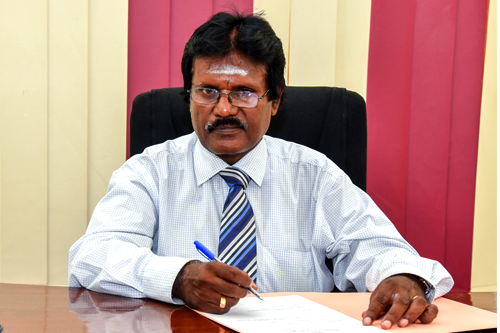Jaffna’s Rejection Of The Meritorious Candidate And Implications For The University System


Colombo Telegraph has since 2014 highlighted with cases the contempt for merit displayed by the University of Jaffna in the selection of academics. This has not changed. We had earlier highlighted the case of Mithila Gowthaman, the unquestionably outstanding candidate for the post of Probationary Lecturer in Financial Management who is an Associate Vice President (AVP) at Moody’s Analytics Knowledge Services Ltd which is a USA based leading provider of high value research, analytics and business intelligence to the financial service sector. If not for the Head of Financial Management, and Prof. Tharmaratnam and Prof Sitrampalam who were council nominees, Mithila’s application would have been buried without a hum, as has happened to many talented applicants.
The person, the Vice Chancellor, the Dean and the Senate Representative have been trying to push into that post comes nowhere near and is low down on the internal (Jaffna) merit list. It is a system in which the mafia of deans, the vice chancellor and the UGC Chairman stand by one another. There are no discussions on how to improve quality or even to avoid some of the more scandalous abuses. If one thinks that there are rules and the University Services Appeals Board (USAB) would uphold them, one is mistaken.
Mithila’s case is an example of where the corruption has set in very deep and has stiffened. As an applicant for probationary lecturer, a university concerned about quality should have grabbed her. Let us see what probationary lecturer signifies. It is an investment in a young, talented person who might otherwise be lost. Otherwise there is no justification for probationary lecturers, and the wise thing to do, as most universities in the world do, is to have those with PhDs apply to come in at senior lecturer level. That will also stop the calamitous inbreeding we see today in our universities.
When there is a departmental consensus that a student in the final year, or a particular applicant, has such scholarly qualities as would be a positive asset to the department, such is the kind of person to be taken in as a probationary lecturer. In 2013 there was such a consensus about Nilani Kanesharatnam in the Zoology Dept. Vice Chancellor Arasaratnam overruled her and put in a favourite low down the merit list. Since about then, the University goes by schemes of recruitment, tailor-made for taking in favourites.
Marks are awarded by selectors for items having nothing to do with scholarship and these marks are easily manipulated by two or three persons on the selection committee. Even marks are awarded for a master’s degree that most of the time defeats the rationale behind investing in a budding scholar, based on performance in the first degree. In Mithila’s case, her exceptional merit rests not on the first degree but on what she achieved in the short time after graduation. A selection committee looking for a scholar will be sensitive to that. But the Dean and Vice Chancellor tried to put her down claiming that she had no research, ignoring the fact that she was constantly doing research of a confidential nature for a leading company in her field.
If fact most lecturers at present come in at Probationary level and have been preselected by their teachers as a guarantee for their security, hide their mediocrity and to aid their power games. For the humanities it has been suicidal. One gets in as a probationary lecturer, writes a thesis in Tamil or Sinhalese under one’s own teacher, the standard of which is not tested in the wider world, and one routinely becomes a senior lecturer and then professor. Hardly anyone is under pressure to become functional in English or even to read in English. An inspection of the Jaffna University Library will show this. In the context of Sri Lanka, one who is not functional in English is illiterate. To deny that is to be patronisingly charitable.
Once such people take over a university they do everything to protect themselves. When an obviously good person with broad exposure in the world and competent in English applies to a department, petitions are written to the heads, deans and vice chancellors not to take that person on some silly technicality. Interviews get postponed indefinitely. Those already inside don’t see that taking such a person is an opportunity for themselves and is good for the students to learn to face the wider world confidently, rather than be frogs in the well.
In a university, no department or faculty could survive on its own. The Humanities should be the life of the University, Senate and Council and should set the tone and standard of discussion for the whole institution. They should be a major voice against corruption in recruitment. This could be seen in the wider world and even in Sri Lanka, where the few articulate voices for reform are from the Humanities. Once the Humanities die, a university is dead. This could be seen in the vanishing of internal checks in Jaffna. Often strong personalities also arouse strong feelings of approbation or disapprobation, but that should not be a problem in a university.
